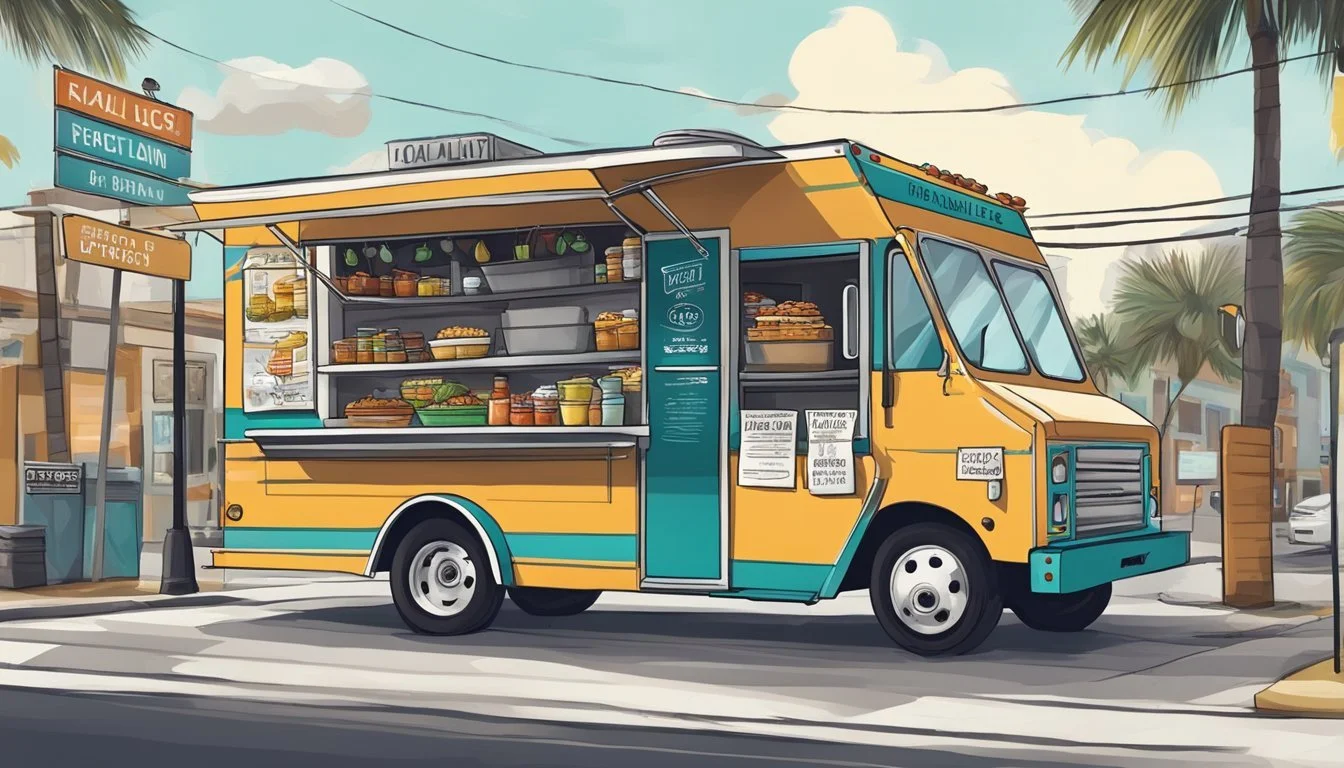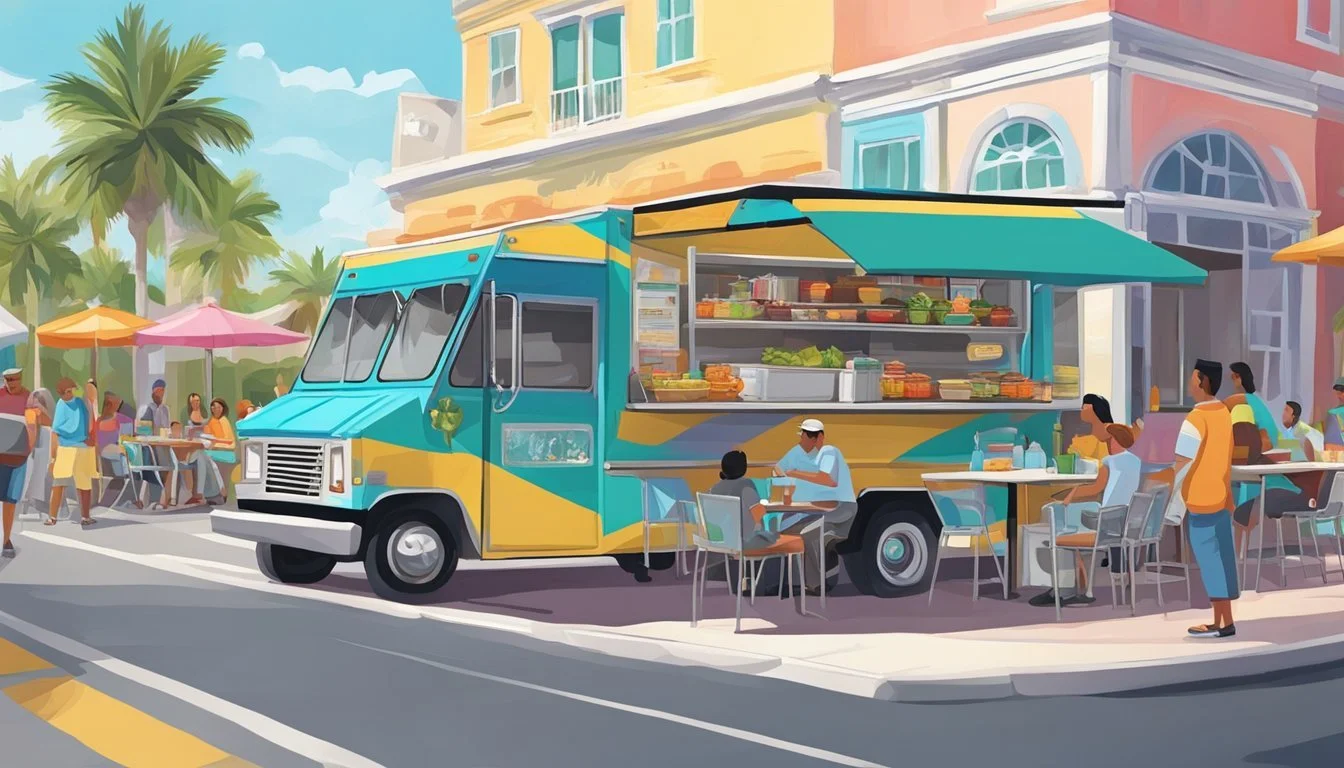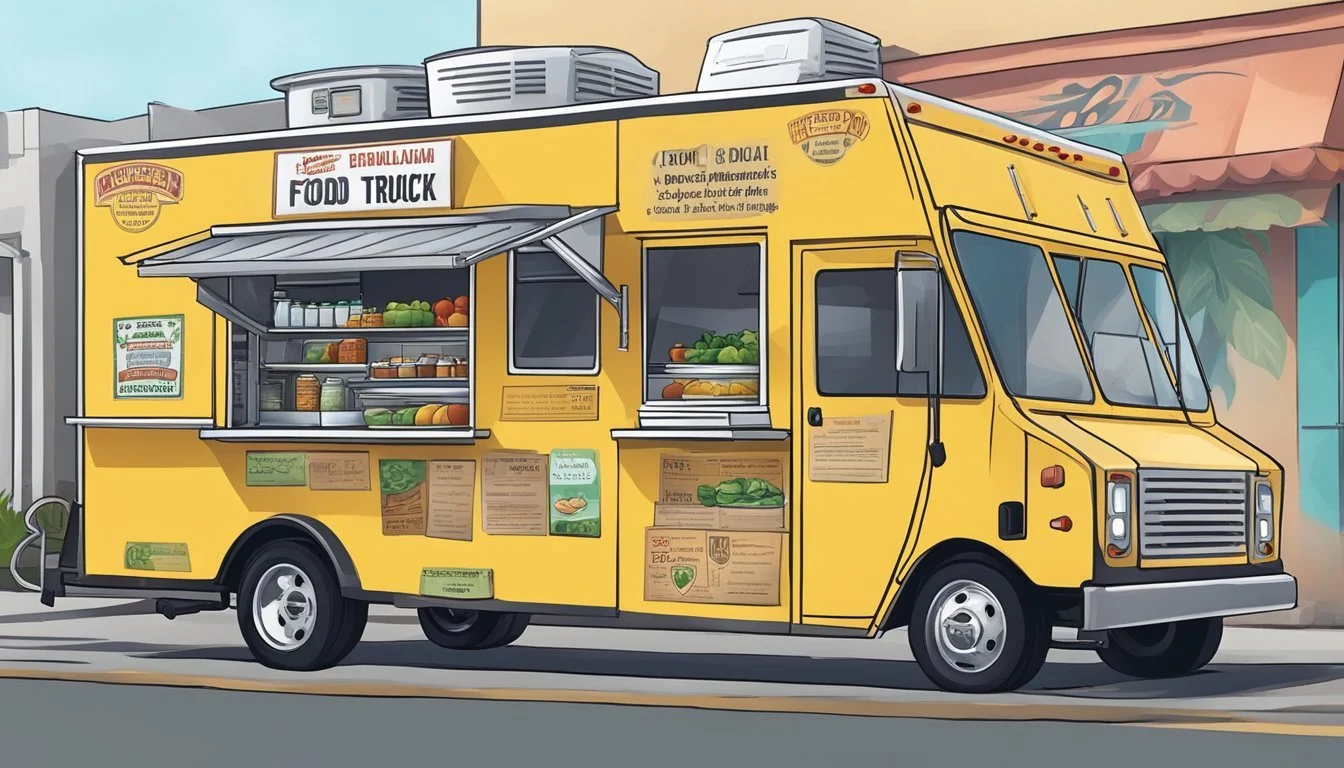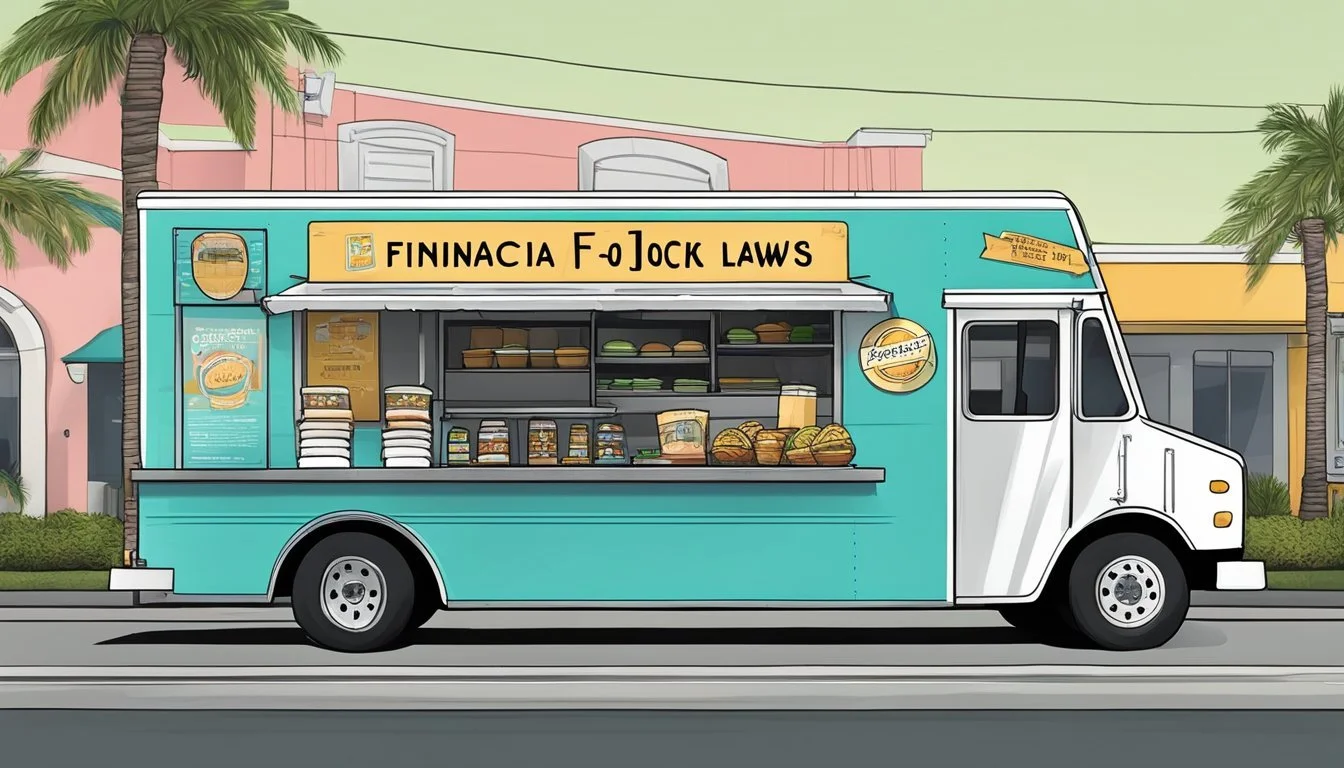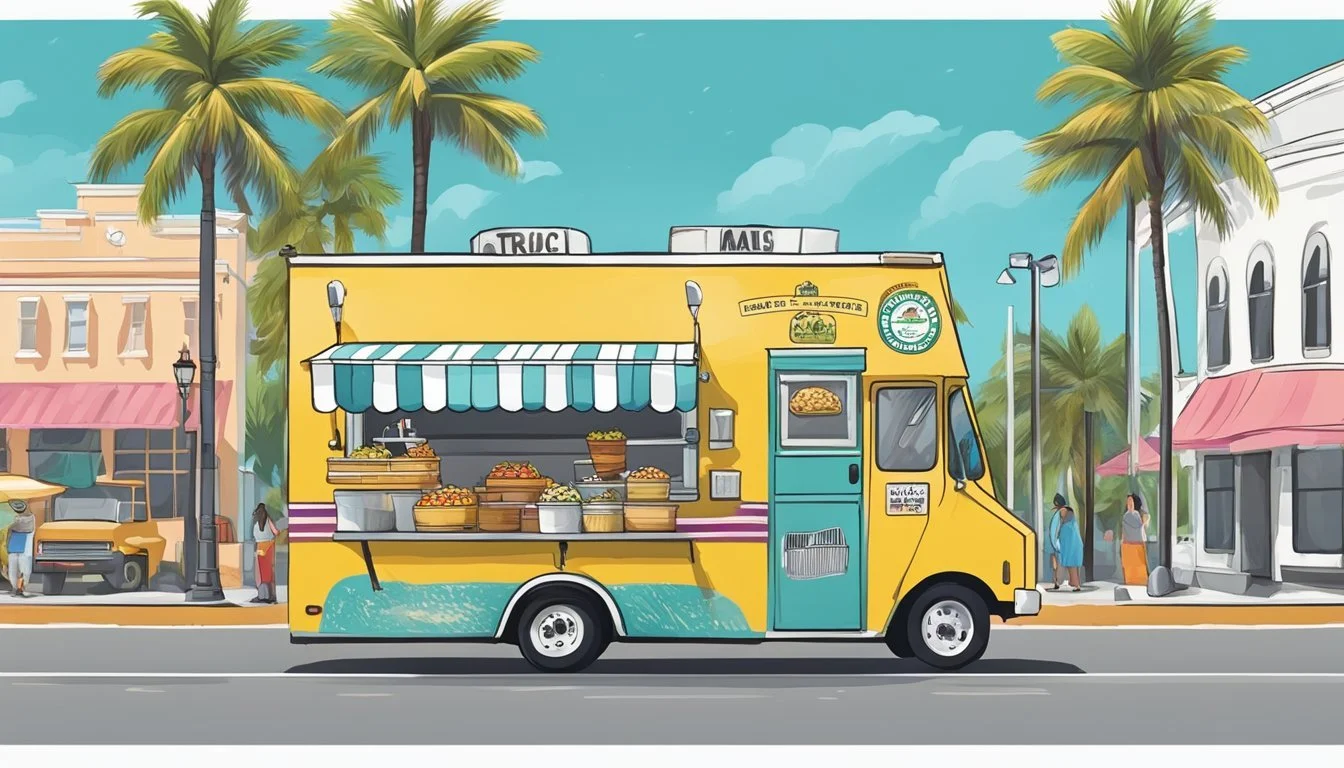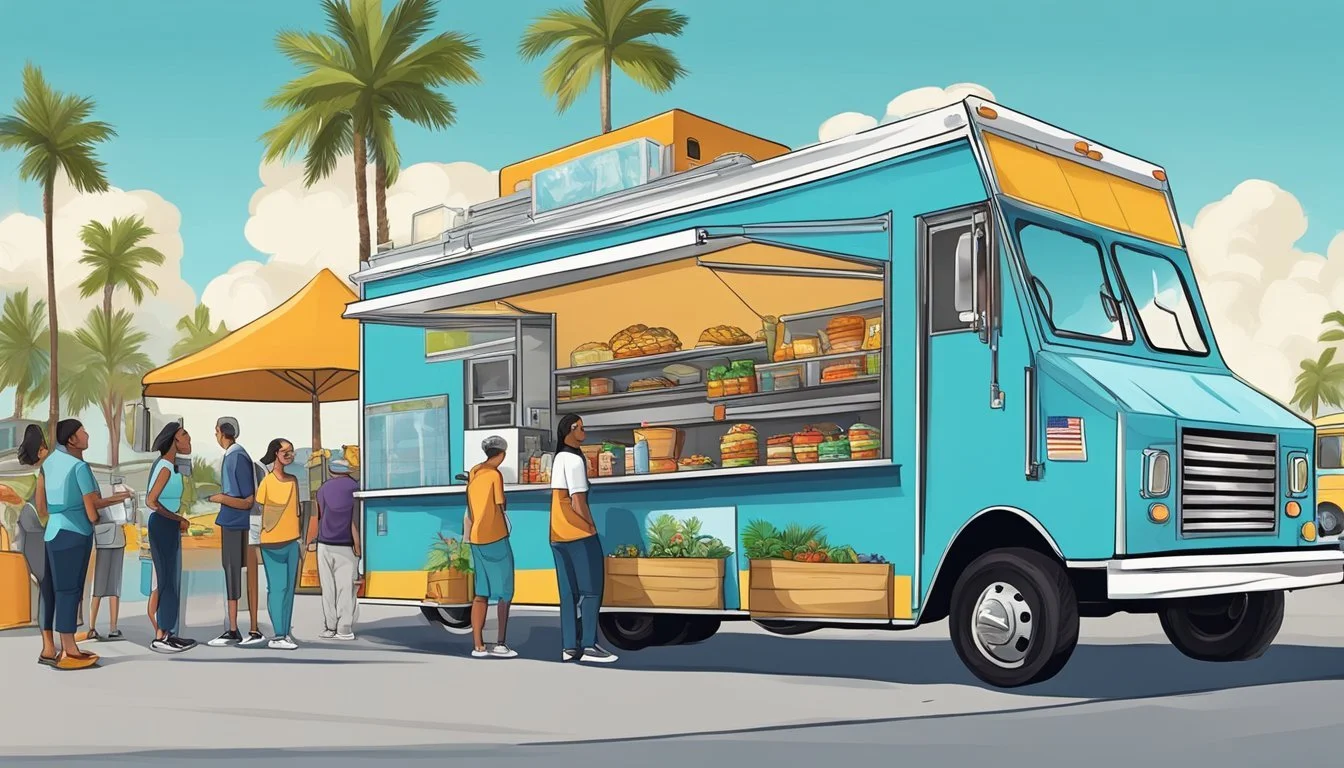Food Truck Laws Port St. Lucie, Florida
Navigating Regulations for Mobile Vendors
Food truck operations in Port St. Lucie, Florida, are subject to specific legal requirements designed to regulate the industry and ensure public health and safety. The landscape of mobile food vending has seen significant changes after The Occupational Freedom and Opportunity Act, introduced and codified into Florida's Chapter 509.102 Statutes. This legislation has altered business licensing within the state, affecting how food trucks are governed at the local level. For instance, it specifies that local governments cannot impose additional business licenses or fees beyond what the state requires.
Understanding the nuances of these laws is essential for food truck owners to avoid penalties and conduct their business lawfully. Port St. Lucie's Code of Ordinances is a comprehensive source that details the various permits, food safety regulations, and zoning restrictions that mobile food vendors need to adhere to. These rules are in place to foster a fair and safe trading environment, ensuring that all food trucks meet consistent standards that protect consumers and align with the city’s planning strategies.
Moreover, the collaboration with the Florida Department of Health in St. Lucie County further augments food safety measures. Mobile food establishments are reviewed and inspected by the department to safeguard public health, with guidelines that are consistent with Florida Statutes Section 381.0072. Food truck operators in the area are expected to maintain high hygiene standards, proper waste disposal, and follow specific operational protocols to comply with health regulations. This collaboration aims to ensure that all food products served to the public from food trucks are safe and not a health risk, thereby supporting the thriving culture of mobile food vending in Port St. Lucie.
Regulatory Overview
In Port St. Lucie, Florida, food trucks are subject to comprehensive regulations set forth by state and local authorities. The regulatory framework is designed to ensure food safety, promote fair business practices, and maintain community standards.
State Regulations
At the state level, the Florida Department of Agriculture and Consumer Services is the primary authority regulating mobile food establishments, which includes food trucks. They must comply with Chapter 500, Florida Statutes, and the Florida Administrative Code. Key requirements include obtaining a license, adhering to food safety guidelines, and undergoing regular inspections.
License: Before operation, food trucks must secure a license through the Department of Agriculture and Consumer Services.
Inspections: Regularly scheduled inspections are enforced to ensure compliance with state food safety standards.
Local Regulations
Local regulations in Port St. Lucie can vary but are implemented to address the unique needs of the community while operating in conjunction with state laws.
Zoning Laws: Food trucks must abide by specific zoning laws that dictate where they can operate within the city limits.
Operational Restrictions: There are restrictions on hours of operation and proximity to brick-and-mortar restaurants, ensuring a harmonious balance with established businesses.
Each entity, from the state of Florida to the local jurisdiction of Port St. Lucie, plays a pivotal role in the regulatory process, ensuring food trucks operate within the bounds of the law and to the benefit of public health and local commerce.
Starting Your Food Truck Business
When launching a food truck business in Port St. Lucie, Florida, understanding the legal framework, securing the right licensing, and choosing an appropriate vehicle are essential steps. Each of these components plays a pivotal role in ensuring a smooth start to your mobile culinary adventure.
Business Structure
Deciding on a business structure is the first critical step for a budding food truck entrepreneur. In Port St. Lucie, one can opt for a sole proprietorship, partnership, limited liability company (LLC), or a corporation. Each format offers different legal and tax implications. A partnership can be straightforward for a small operation, while an LLC provides liability protection without the complexity of a corporation.
Business Licensing
Securing a business license is mandatory to operate legally. A Mobile Food Dispensing Vehicle (MFDV) license is necessary for food trucks in Florida, as detailed by the Florida Department of Agriculture and Consumer Services. This includes meeting specified safety and operation standards. Food truck owners must also register their business with the Florida Department of Revenue for tax purposes.
Choosing a Vehicle
Selecting the right vehicle is a substantial investment that should align with the business's needs and regulatory requirements. A food truck, essentially a self-propelled mobile food dispensing vehicle, must be well-equipped for food preparation and service. Factors to consider include size, kitchen layout, equipment, and compliance with Port St. Lucie's health and safety regulations. Beyond a standard food truck, entrepreneurs might also consider other vehicles such as trailers or food carts, depending on their specific service style and scale of operations.
Health and Safety Compliance
Ensuring compliance with health and safety regulations is crucial for food truck operators in Port St. Lucie, Florida. They are required to adhere to specific food safety standards, undergo regular inspections, and maintain an association with a commissary.
Food Safety Requirements
Food trucks in Port St. Lucie must abide by the Food Services guidelines set by the Florida Department of Health, which dictate safe food handling practices and proper hygiene. Operators are expected to have a Certified Food Protection Manager on board and must ensure all staff are trained in food safety procedures. Compliance with Chapter 500, Florida Statutes, and the documentation outlined in the Food Permit Requirements is essential for operation.
Inspection Protocols
Regular inspections are conducted by the Florida Department of Agriculture and Consumer Services to enforce health and safety standards. These inspections are in place to verify that food trucks are following the necessary Food Safety and Sanitation protocols. Each vehicle must be equipped with suitable facilities for the preservation and handling of food to minimize the risk of contamination.
Commissary Usage
Food trucks in Port St. Lucie are mandated to operate in conjunction with a licensed commissary – a commercial kitchen where food can be safely prepared and stored. As outlined by the Florida Department of Agriculture & Consumer Services, this partnership ensures that the vehicles have regular access to facilities for food preparation, dishwashing, and waste disposal, which is critical for maintaining public health standards. The commissary also acts as a base of operations for the purpose of inspection and regulation.
Operational Essentials
Food truck operators in Port St. Lucie, Florida, must adhere to specific regulations to legally conduct business. Ensuring all permits and registrations are in order, maintaining proper insurance coverage, and securing reliable sources for food and supply procurement are fundamental to compliant operations.
Permits and Registrations
Every food truck in Port St. Lucie is required to obtain the necessary permits and registrations prior to serving food to the public. This includes a:
Business License: Mandatory for operating any business within city limits.
Mobile Food Facility Permit: Specific to mobile food units including food trucks.
The Department of Business and Professional Regulation is the primary entity that oversees these requirements, ensuring all food service operators meet state and local guidelines.
Insurance Coverage
Food trucks must carry specific insurance policies to protect their business and clientele. These policies typically include:
General Liability Insurance: Covers most third-party bodily injury and property damage claims.
Commercial Auto Insurance: Specifically covers the vehicle used for the food truck operations.
Securing the right insurance package is crucial for risk management and providing peace of mind for both the owner and the customers.
Food and Supply Procurement
Sourcing high-quality ingredients and prepackaged food is critical for any food service establishment. Food truck operators should:
Establish relationships with reputable suppliers for fresh produce and other ingredients.
Ensure that prepackaged food items meet all safety regulations as outlined by the relevant health departments.
Consistent supply chains are essential to maintain steady operations and comply with food safety standards.
Financial Considerations
When starting a food truck business in Port St. Lucie, Florida, operators should be well-versed in managing their finances, particularly in the areas of taxes and associated fees. A clear understanding of these financial obligations is crucial for maintaining compliance and ensuring the longevity of the business.
Understanding Taxes
Food truck operators in Port St. Lucie must register with the Florida Department of Revenue and understand their obligations concerning sales tax. They are required to collect sales tax on the food and beverages sold and then remit these taxes periodically. Additionally, registering with the Internal Revenue Service (IRS) is necessary for federal tax purposes.
Federal Taxes: Register with the IRS for an EIN.
State Taxes: Collect and remit sales tax to the Florida Department of Revenue.
Handling Fees and Charges
Operating a food truck incurs several fees and charges that the owner must budget for diligently. These include licensing fees for a mobile food facility permit and costs related to health inspections, both of which are essential to legally operate within city limits. The menu items sold can also affect fees, as items that include alcohol have different licensing requirements.
Permits and License Fees:
Mobile Food Facility Permit
Health Inspection Fees
Additional Charges:
Alcohol License (if applicable)
Location and Logistics
In Port St. Lucie, Florida, food truck operators must strategically select their selling locations while adhering to specific municipal and county regulations that govern restricted areas. Understanding these logistics is crucial for lawful and successful operation.
Selecting Selling Locations
Food truck vendors in Port St. Lucie should identify areas that attract their target market while ensuring compliance with the local zoning laws. They must obtain a Business License and be aware of the locations that are sanctioned by the municipality for food truck operation. It's essential to choose locations that are permissible and have high foot traffic to ensure visibility and customer access.
Navigating Restricted Areas
Certain locations within Port St. Lucie are off-limits to food trucks. The local government may prohibit food trucks from operating near sensitive areas like schools, hospitals, and certain residential zones. Additionally, the entirety of an area like a seaport or an airport could be restricted unless special permissions are granted by entities such as the Aviation Authority. Food trucks must also be aware of regulations regarding proximity to traditional brick-and-mortar restaurants and ensure they are not violating any distance requirements set by the County or Municipality.
Vendors need to regularly check the Code of Ordinances | Port St. Lucie, FL | Municode Library for the most up-to-date information on restricted areas to avoid penalties or fines.
Team and Management
In Port St. Lucie, Florida, the successful operation of a food truck requires adherence to certain regulations, extending into the realm of team and management. The team involved in running a food truck should include individuals capable of managing daily operations, which covers several distinct roles.
Firstly, management concerns the oversight of compliance with all local ordinances, including food safety and employee health requirements. A manager or owner is responsible for the procurement of necessary permits, such as the Mobile Food Facility Permit and ensuring that all team members are aware of their responsibilities under these licenses.
It's also crucial that team members are trained in customer service and food preparation. This training should align with the guidelines described in the Code of Ordinances for Port St. Lucie.
Key team roles include:
Owner/Manager: Handles legal compliance, oversees operations.
Chef/Cook: Manages food preparation, maintains quality control.
Service Staff: Operates point of sale, engages with customers.
Cleaning Crew: Responsible for maintaining hygiene standards on the food truck.
The team's structure is typically flat, allowing for flexible roles but with each member carrying distinct responsibilities. At least one individual must be designated as the person in charge during operating hours, to address any public health concerns.
Regular team meetings are essential to ensure that everyone understands updates to food truck laws in Florida and Port St. Lucie's local ordinances. These gatherings foster a unified approach to compliance and permit modern food truck operation within the legal framework.

